HSE University Launches Its Own Independent English Exam
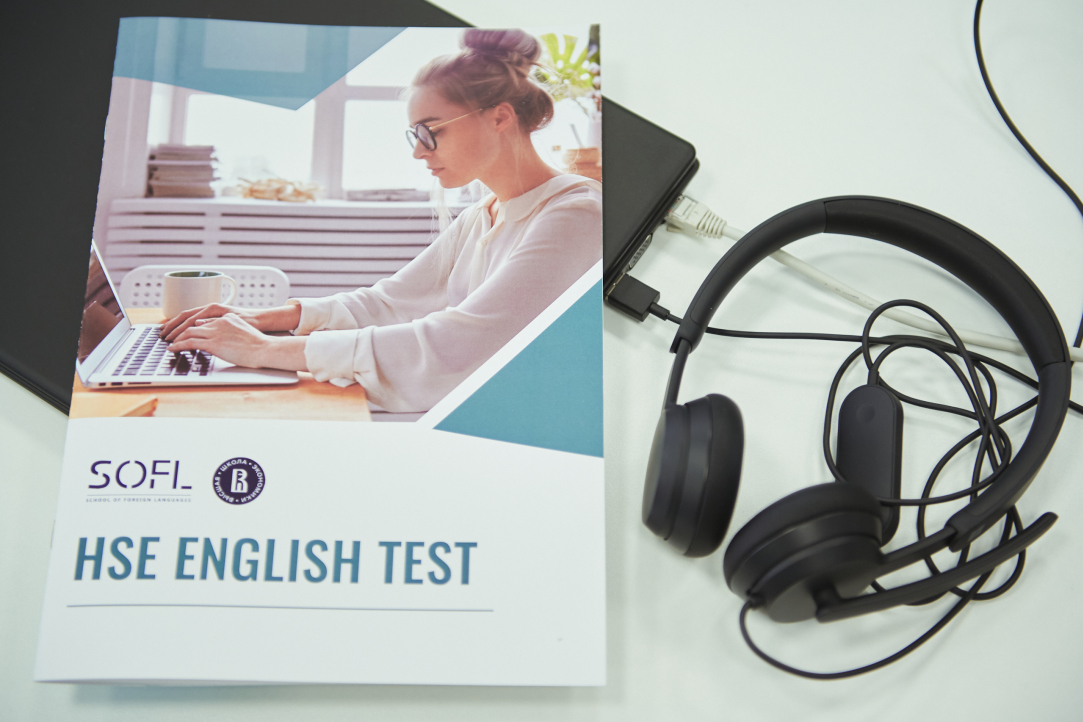
The exam has been developed by the HSE School of Foreign Languages in compliance with all relevant international standards. On May 13, the Independent English Language Examination Centre opened in the HSE University building on Staraya Basmannaya Ulitsa, and the first students took the exam on May 16. In the future, the opportunity to take an independent assessment at the Centre is expected to be available not only to HSE students, but also to students from other universities, schoolteachers, and corporate clients.
Mastering foreign languages, especially English, has been an important element of an HSE University education throughout its thirty-year history. The Independent English Exam is compulsory for students of all HSE bachelor's and specialist's programmes.
For the past decade, students have been taking an independent exam similar to IELTS (the most widely accepted exam in an academic context among international systems). The results were assessed by external certified examiners. Students could also take IELTS or another international test at an international agency, and if they achieved the required score, the result was recognised by the university. Now, HSE University will be holding its own independent examination, and is ready for this undertaking both in terms of methodology and reputation.
Students will take the exam using a system developed by the HSE School of Foreign Languages. This is a unique Russian system that meets all international standards and fits into the international system of language competence assessment. However, students retain the opportunity to submit test results from an international agency.
Vadim Radaev, HSE First Vice Rector
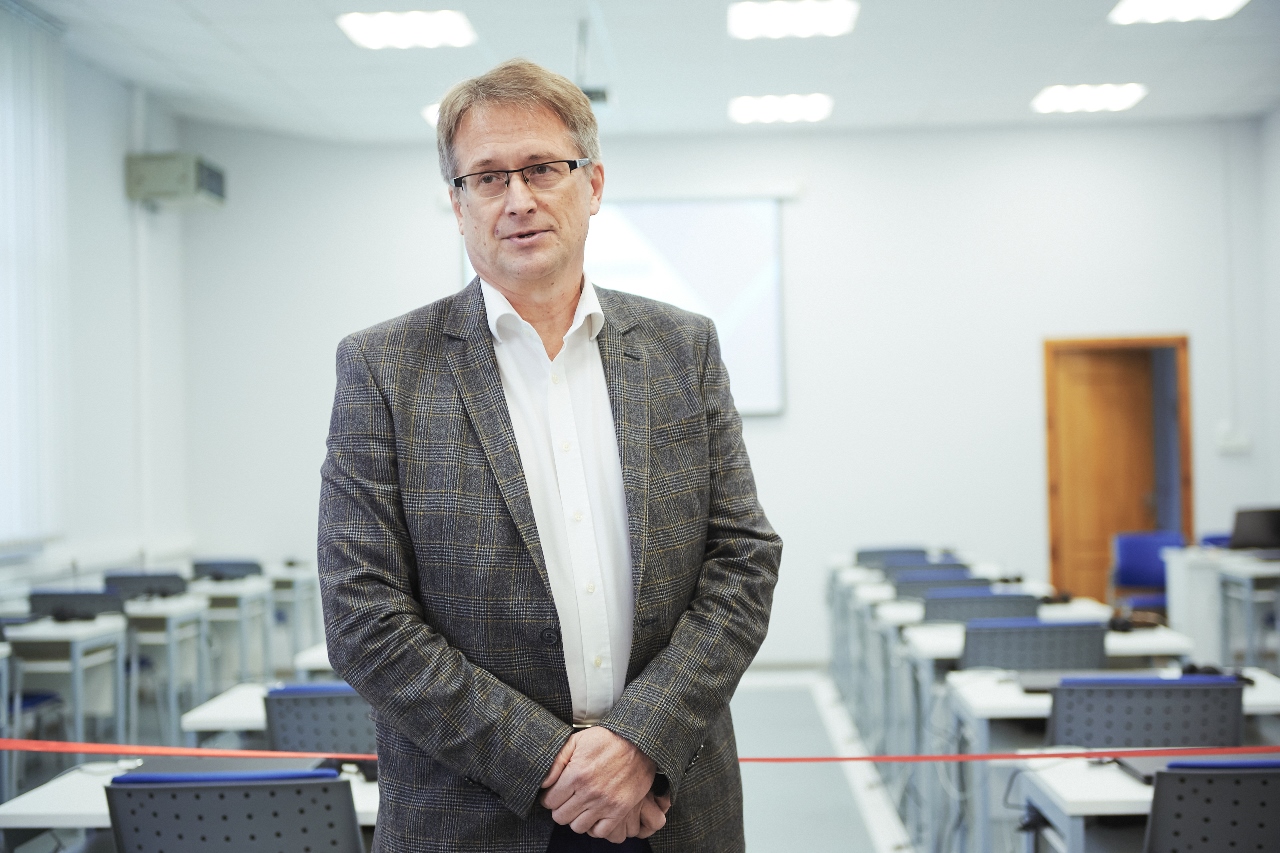
‘It’s always good to be examined by another teacher, rather than one who taught you. The potential accumulated by the HSE School of Foreign Languages has allowed it to develop a system of independent assessment of students' knowledge and to continue improving the system on its own. This will help build a distributed exam format—making them more convenient for students, allowing students to choose their own time slots, reducing organisational risks, and improving monitoring. We also plan to enter foreign markets.
Vadim Radaev notes that unified approaches to assessment provide significant analytics on a university scale, making it possible to compare results in one subject achieved by different student groups taught by different teachers, as well as students from different schools, departments, and faculties. It is not easy to introduce independent assessment, and it is not always possible in some disciplines.
Sergey Roshchin, HSE Vice Rector
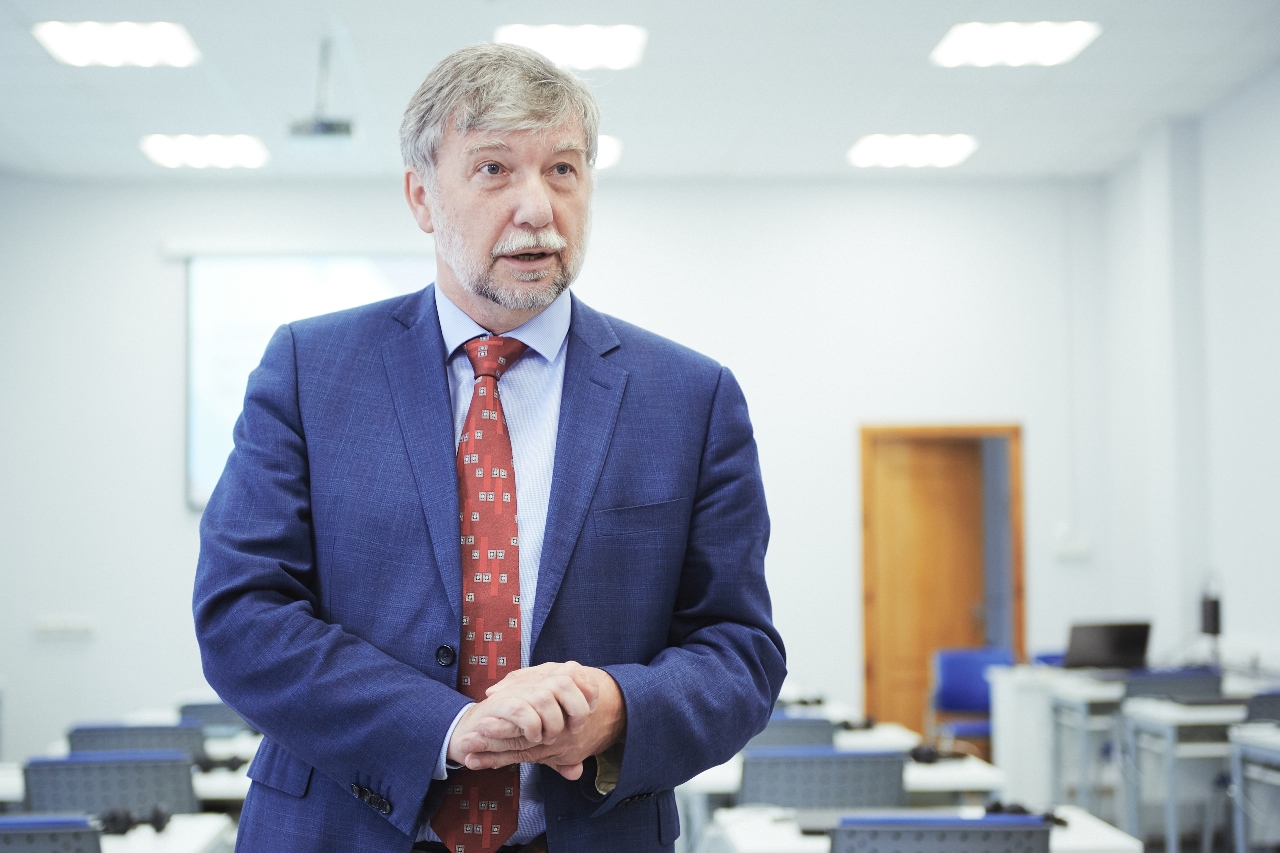
‘The HSE English Exam is by no means the only example of independent assessment practice at our university. This year, we carried out the first independent assessment of digital literacy as part of the Data Culture project. Similar projects are being implemented for lawyers and economists, and will be subsequently implemented for mathematicians. The initiative of the School of Foreign Languages is even more important because its Independent English Exam relies extensively on digital products and services.’
Sergey Roshchin believes that the Independent English Language Examination Centre is ‘not just a room with desks and computers, but one of the flagship projects for HSE University to promote our understanding of the modern educational model outside the university.’ Its relevance is also due to the demand for English language fluency in the labour market: according to HeadHunter, the demand for vacancies requiring English language skills doubled in March 2022.
A universal multi-level test is being developed for external clients to conduct an independent examination of English, which evaluate candidates’ skills in reading, listening, writing, and speaking, as well as their vocabulary and grammar knowledge. All sections of the test are built around the principle ‘from simple to complex’ and it is based on real communicative tasks and situations. Candidates can complete the tasks on a computer, on paper, or online with proctoring.
The test will be offered in two versions: the Academic English Test (using English for academic purposes and research work) and the Business English Test (for business and corporate communication).
Ekaterina Kolesnikova, Head of the HSE School of Foreign Languages
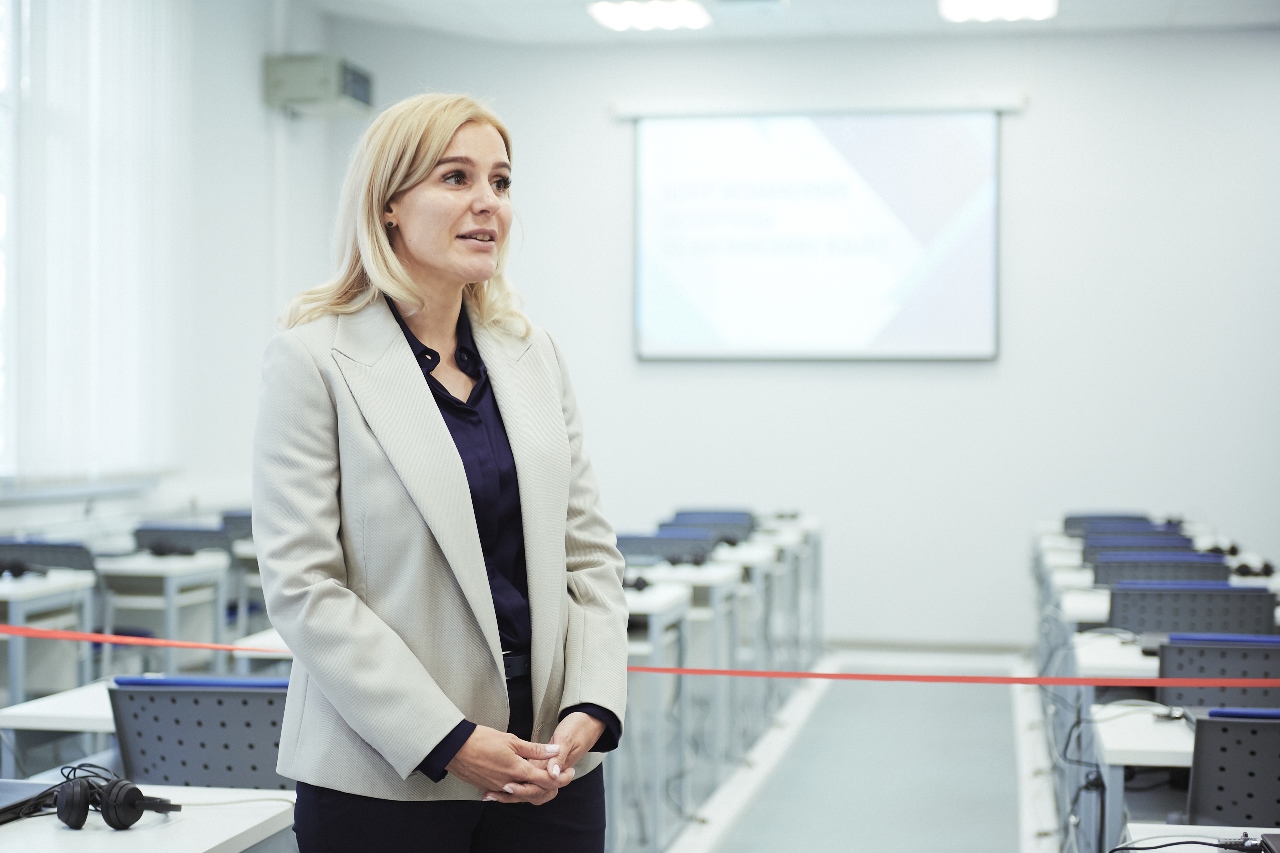
‘In the future, our target audience will also include those who would like to receive an independent assessment of their English skills—teachers and students from other universities, schoolteachers, corporate clients, etc. In recent months, we have been approached by organisations that used to apply to international agencies to assess their personnel’s language skills, but are now deprived of this opportunity.’
The test results will be presented according to the Common European Framework of Reference for Languages (CERF). This is an unconditional requirement that ensures the test will be recognised. Based on the test results, the candidate will receive a certificate indicating their English proficiency according to the CERF (A1 to C1+), including a separate certificate for each language skill. A group report is available for corporate clients.
HSE University is implementing the new system in all four campuses. Students studying remotely can take the exam online using proctoring, while other students can take it on a classroom computer. Please note that this not the case for HSE University in Perm, where the exam is only administered online. The task bank and examination technology created by the Independent English Language Examination Centre are common across all campuses.
Natalia Kudinova, Head of the HSE Independent English Language Examination Centre
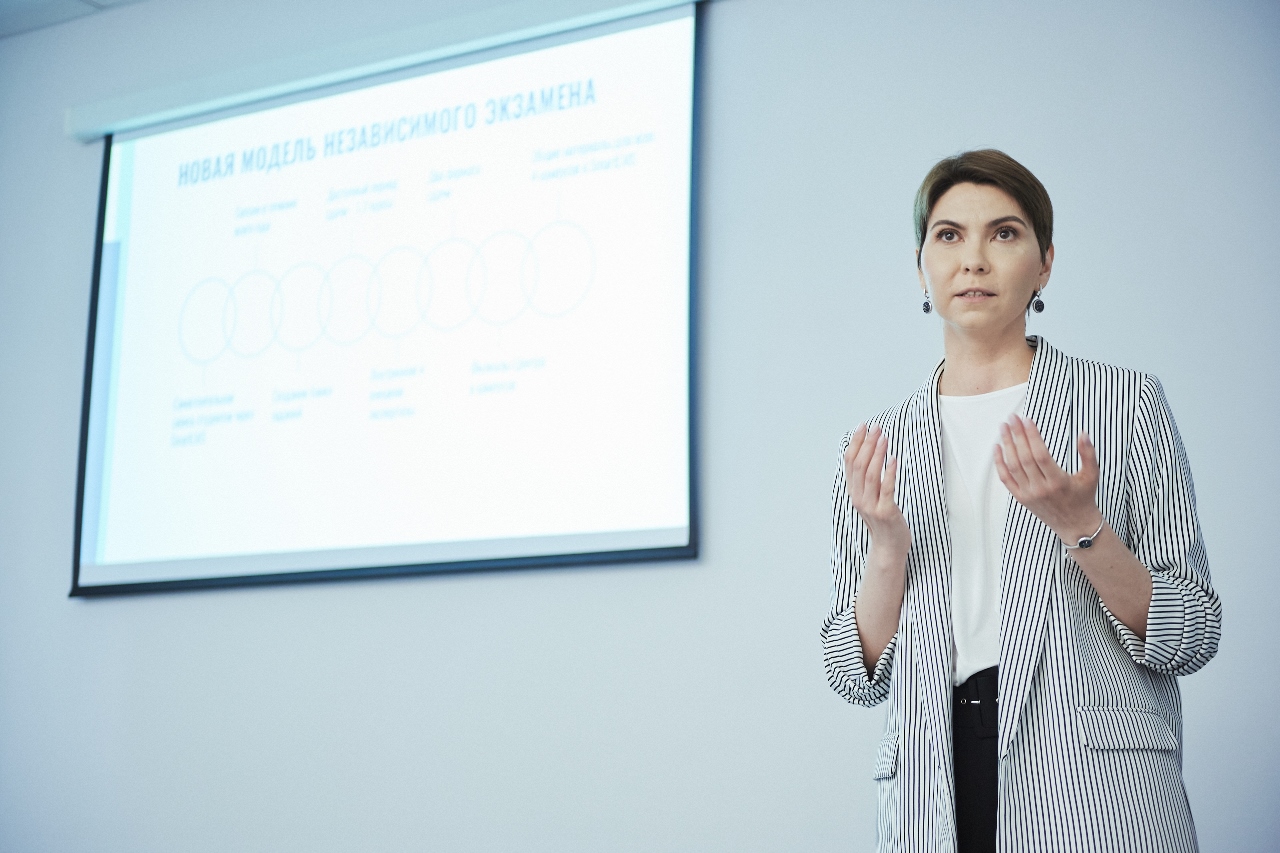
‘We have developed more than 250 assignments in all four sections, which makes it possible to generate more than a thousand unique exam options. Listening and reading are tested automatically on the SmartLMS platform, and each oral and written answer is checked by two experts. Our pool includes 18 examiners who have undergone a four-stage training course, including a course on how to approach and assess international exams, and have successfully passed such an exam.’
The first exam using the new system for HSE students took place on May 16. Eight students, including three students of the Economics and Politics in Asia programme, sat the exam in Professor Elena Solovova's classroom on Staraya Basmannaya Ulitsa.
Every student must take the exam before completing their third year. Students can sign up on the SmartLMS platform, and there is a schedule of available slots for the year ahead. Detailed information for students, including a demo and slot schedule, can be found on the Centre’s website.
